Always bet on Black... Panther
I've been tinkering with my lists for a couple of days now, and I'm finding the task infinitely more difficult than I had thought it would be. Not, ironically, because I'm having trouble paring the lists to 10 characters each, but because I'm struggling with the concept of "favorite." What do I mean when I use that word? The characters whose adventures I read most frequently? Those whose appearance in a story will cause me to pick up a book I might not otherwise buy? The precious few with some special meaning to me personally? The ones whose images I collect? Yes, in some respect, to all of the above.
Which isn't helping my list-making any.
When I finalize my lists, you can be certain that I'll share them in an upcoming Comic Art Friday.
Certain to make my Marvel list — whatever that list ultimately looks like — is T'Challa, the Black Panther. I've been an avid Panther fan since he first appeared in Fantastic Four #52 (July 1966), one of the earliest comic books I can recall reading.
The Black Panther was the superhero universe's Jackie Robinson — there had been a handful of non-offensive black characters in mainstream comics previously, mostly at Marvel (Gabe Jones of Sgt. Nick Fury's Howling Commandos, for example, preceded T'Challa by three years), but the Panther was the first costumed superhero of African heritage to appear in a mass-market comic.
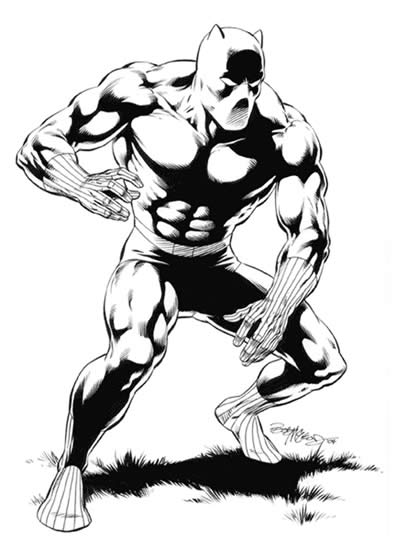
A common error made by ill-informed writers is citing the Black Panther as comics' first African-American superhero. A native, and ultimately the king, of the African nation of Wakanda — and proudly not American — T'Challa doesn't qualify on that score. That honor is owned by the Panther's fellow Marvel hero, the Falcon, who arrived in the pages of Captain America in 1969 (and co-headlined the title for a while in the '70s).
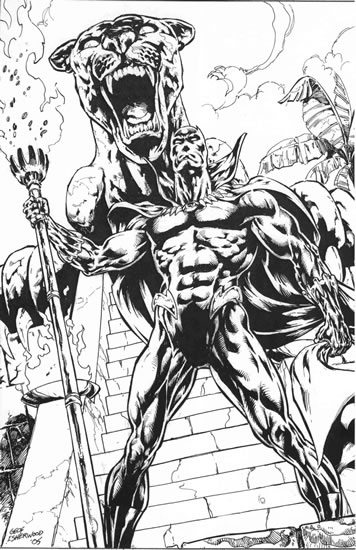
Nor was T'Challa the first black superhero to star in his own comic book. Luke Cage (later called Power Man, he now battles evil simply under his own name) holds that distinction with his debut series, Luke Cage, Hero for Hire, which landed on newsstands in 1972. (In fact, an obscure character named Lobo was the first African-American headliner in mainstream comics, with a two-issue series launched by Dell Comics in 1965. Lobo, however, was an Old West gunslinger, not a superhero.)
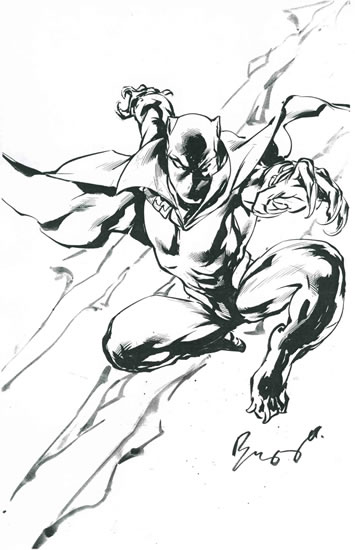
Although I've become a devoted follower of the current Black Panther series written by movie director and Black Entertainment Television executive Reginald Hudlin, I still believe that T'Challa's best interpreters were Don McGregor, who chronicled the Panther's exploits (illustrated by artists including Billy Graham, one of the few black artists working in comics at the time) in the early '70s series Jungle Action, and Christopher Priest, who partnered with artist Mark Texeira (and later, the penciler/inker team of Sal Velluto and Bob Almond) for a memorable five-year run beginning in the late 1990s.
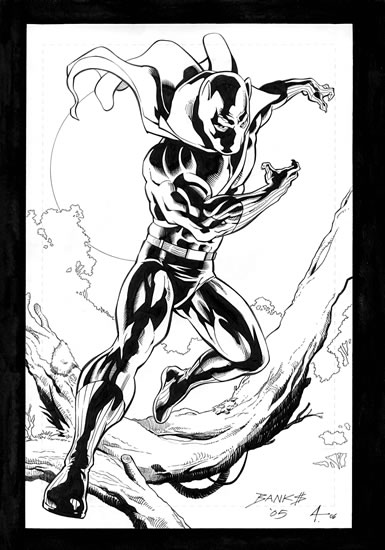
Today, the Black Panther is an acknowledged star in the Marvel Universe. He's married to one of its most powerful and beautiful heroines, the mutant Ororo Munroe, better known as Storm. The Royal Couple of Wakanda are currently guest-starring in the book where T'Challa's adventures began — Fantastic Four — in a highly entertaining story arc penned by Dwayne McDuffie of Justice League TV fame.
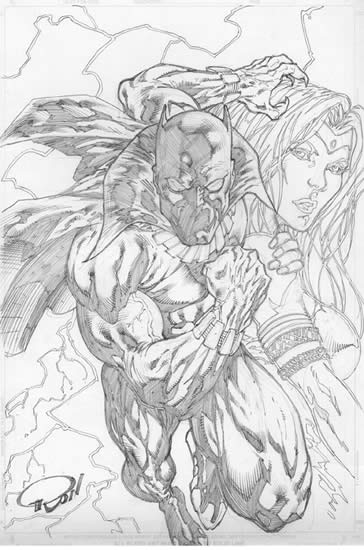
And that's your Comic Art Friday.









0 insisted on sticking two cents in:
Post a Comment
<< Home